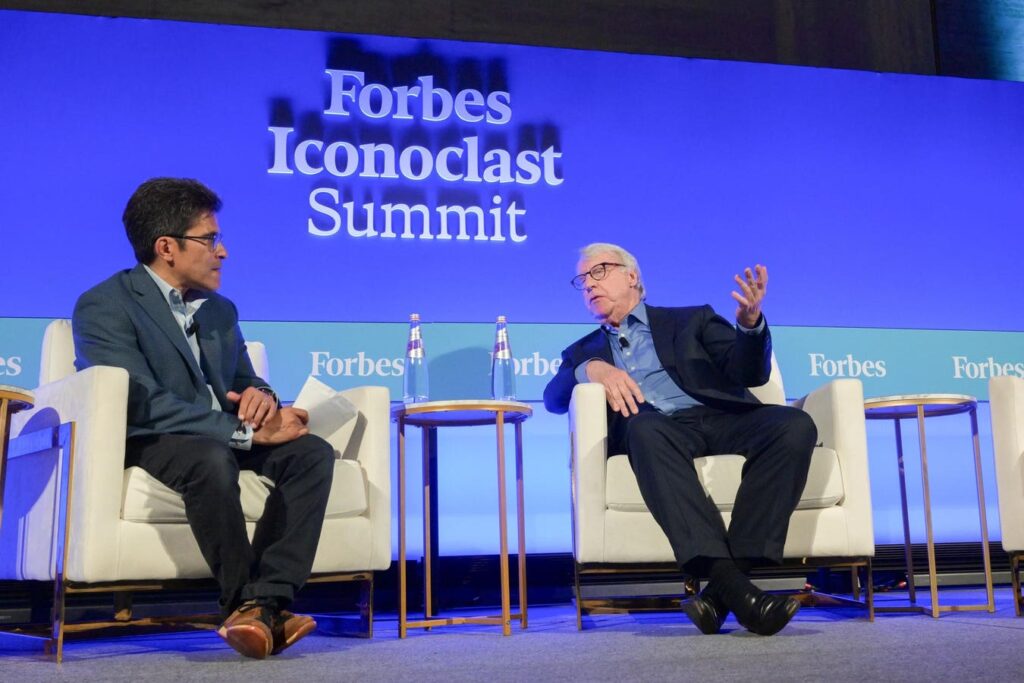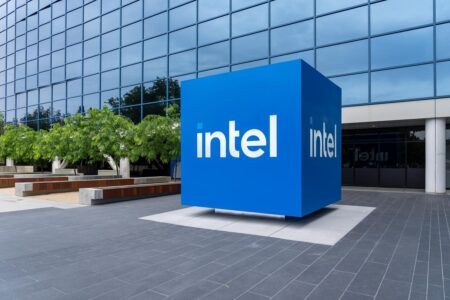When legendary investor Jim Chanos entered the stage at the 2025 Forbes Iconoclast Summit Thursday, he had a big smile on his face thanks to the very public feud that had erupted behind President Donald Trump and the world’s richest person, Tesla CEO Elon Musk. Chanos, who first shorted Tesla stock back in 2016, said of the spat: “Most predictable breakup ever.”
With a long and successful track record of betting against overpriced or fraudulent companies, Chanos’ latest big short is used-car retailer Carvana. Just as intriguing, he’s also looking to short companies that will lose out in the race for artificial intelligence.
“Carvana is a misunderstood story: The Street believes it is an epic turnaround, but in fact, the company is still losing money,” said Chanos. “Although it is priced as a growth stock, the business is cyclical.” He pointed, for instance, to how, in mid-2023, its core business dropped by more than 30% year-over-year, when there was a slight slowdown in the economy.
Chanos noted the Street’s is focusing on the company’s gross profit margins. But, he argued, those margins are a product of aggressive accounting that inflates both unit economics and corporate profitability while excluding many components that other auto dealers typically include.
“Carvana is making all this money in finance, not selling cars,” explained Chanos. “They are a subprime lender.” Carvana has booked big gains on selling subprime loans to affiliates and non affiliates, which represent 122% of their income in the latest quarter.
Carvana’s stock has a history of wild swings. The company originally went public in 2017 at $15 per share, raising $225 million. A pandemic-era darling, the stock hit an all-time high of around $370 per share in early 2021 during the auto-supply chain crisis, but tanked shortly after and by 2022 had fallen to below $5 per share amid reports that the company was on the brink of bankruptcy following its $2.2 billion acquisition of auction business ADESA. The following year, with its stock still languishing in the single digits, the company announced a debt and equity raise in a move that S&P Global called, “tantamount to default.”
By mid-2024, the stock had rallied back above $100 per share and continued to rise, hitting roughly $250 by the end of the year.
So far this year, Carvana is up 70% to $343 per share, rallying massively since a low point of $162 per share in early April when the market tanked following President Trump’s tariff announcements. The bull case behind the most recent rally: Auto tariffs will hurt new car sales, giving Carvana more market share. Now, in June 2025, the company’s enterprise value has hit $73 billion, near an all-time high.
One good indicator of a looming correction, according to Chanos, is that the short interest on Carvana stock is back down to multi-year lows of below 10%, a marked turnaround from being one of the most heavily shorted stocks in the market during 2023.
“Perhaps more ominous is that insiders have begun to sell an absolute torrent of stock—pretty much the whole C-suite is getting out seemingly as fast as they can,” he said. “This is really a company at the end of the whip for retail consumers.” Some $1.7 billion worth of stock was sold by company executives in May, filings show.
Chanos famously predicted energy company Enron’s collapse in 2001, shorting the company months before a large accounting scandal destroyed investor confidence and led to bankruptcy. He also gained fame with profitable bets against payments company Wirecard, which in 2020 admitted to billions of euros on its books that “did not exist” and resulted in insolvency.
Not all of his bets have had such success, however. Chanos famously took a short position against electric vehicle maker Tesla in 2016, but reduced the position in 2020 before the company was added to the S&P 500 index. In the following years, his other short positions included Live Nation, International Business Machines, Block and General Electric, among others. None matched his Enron and Wirecard successes.
In late 2023, Chanos closed down the hedge funds he managed that shorted overpriced or fraudulent companies, citing dwindling assets and a long/short equity business model that was increasingly coming under pressure. Converting it into a family office, he now no longer manages capital but continues to advise clients at Chanos & Co., the firm he founded in 1985 as Kynikos Associates.
Chanos also told the Iconoclast audience that he is shorting several companies that have benefitted from the hype around AI but will lose out in the future, such as “IT body shops” like IBM. He likened this investing theme to the dot-com bubble, which burst in 2000. Back then, he successfully shorted companies he believed wouldn’t survive the technological transition, such as Blockbuster Video (the pre-Netflix movie rental chain) and Kodak (the film and camera pioneer that went bankrupt after the transition to digital photography).
“We were short almost all those types of companies back then,” Chanos said. “We’re doing our work now but we think there are a number of companies that similarly pop up and are going to be roadkill on the AI highway.”
IT consultants and body shops will see their businesses melt away, he predicted. “We’re puzzled by some of them because they are getting valuations similar to AI type companies when even a cursory look at their business model shows they might be in a lot of trouble,’’ he added. One of Chanos’ older names within that group is IBM, which he has been short on and off since 2020. “The company is not growing but trading at all-time high valuations,” he said, noting that the “antiquated software” it maintains for its clients will likely become obsolete.
Read the full article here
















